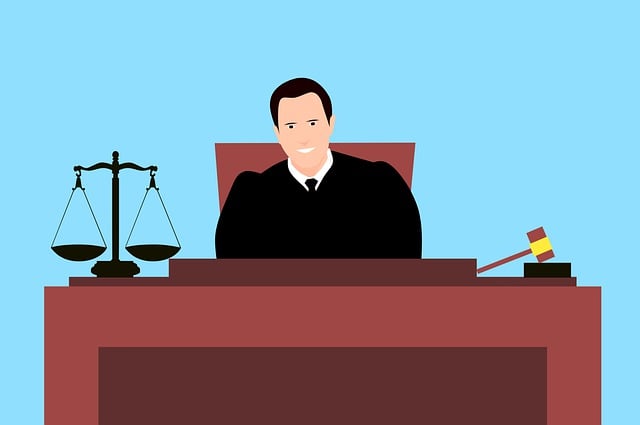Environmental Crime Trials are essential for holding corporations and individuals accountable for their impact on nature, promoting environmental justice. In the context of white-collar crimes, especially antitrust litigation against tech companies, these trials require sophisticated strategies. By drawing parallels with antitrust cases, legal teams can develop innovative solutions balancing environmental protection and business interests. Key defense tactics for tech giants include meticulous documentation, data analytics, and leveraging technological expertise. Both successful prosecutions and ongoing challenges in Environmental Crime Trials demonstrate the importance of expert witness testimonies and exposing complex environmental impacts. Effective prosecution strategies focus on competitive harm and consumer welfare, but securing challenging defense verdicts remains difficult due to technical evidence and public perception.
“Uncovering the intricate world of environmental crime trials, this article delves into a critical aspect of modern legal battles. We explore ‘Understanding Environmental Crime Trials’ from a legal standpoint, dissecting their significance and unique challenges. Furthermore, we scrutinize ‘Antitrust Litigation Strategies in the Tech Industry’, focusing on key considerations for companies facing such charges. Through insightful case studies, we analyze both successful prosecutions and lingering obstacles, shedding light on the complexities of holding environmental criminals accountable, especially in the tech sector.”
- Understanding Environmental Crime Trials: A Legal Perspective
- Antitrust Litigation Strategies in the Tech Industry: Key Considerations
- Case Studies: Successes and Challenges in Environmental Crime Prosecutions
Understanding Environmental Crime Trials: A Legal Perspective

Environmental Crime Trials offer a unique legal lens into understanding the consequences of human actions on the natural world. From pollution to habitat destruction, these trials are not merely about punishment but also serve as a powerful tool for environmental justice. In the context of white collar and economic crimes, they play a pivotal role in holding corporations and individuals accountable for their impact on the environment. The intricate nature of these cases demands sophisticated strategies, especially when dealing with complex issues such as antitrust litigation involving tech companies.
For his clients facing environmental charges, understanding the legal framework is key. These trials often involve intricate regulations and international agreements, making it crucial to employ innovative strategies. By drawing parallels with antitrust cases in the tech sector, legal teams can explore creative solutions that balance environmental protection with business interests. This approach not only ensures a fair trial but also fosters a dialogue between philanthropic and political communities, driving sustainable practices across industries.
Antitrust Litigation Strategies in the Tech Industry: Key Considerations

In the realm of antitrust litigation strategies for tech companies, understanding the nuances of legal proceedings is paramount. As the tech industry continues to evolve, so do the complexities surrounding competition and market dominance. When facing white-collar defense challenges, tech giants often employ strategic approaches to avoiding indictment. One key tactic involves meticulous documentation and record-keeping, ensuring transparent practices that can withstand rigorous scrutiny. By maintaining comprehensive records of decision-making processes, companies can demonstrate compliance with antitrust regulations and potentially achieve a complete dismissal of all charges.
Additionally, tech firms may leverage their technological expertise to present unique arguments. They can employ data analytics and sophisticated modeling to illustrate market dynamics, showing that alleged anti-competitive behaviors were not detrimental but rather strategic moves in a highly competitive landscape. Such approaches require deep industry knowledge and legal acumen to navigate the intricate balance between innovation, competition, and regulatory compliance.
Case Studies: Successes and Challenges in Environmental Crime Prosecutions

Environmental Crime Trials present unique challenges that require innovative strategies. Case studies reveal both successes and struggles in prosecuting high-stakes cases involving polluters. For his clients, successful prosecutions often hinge on meticulous document collection and expert witness testimonies that unravel complex environmental impacts. Antitrust litigation strategies for tech companies can offer valuable insights, focusing on competitive harm and consumer welfare as applicable to environmental issues.
Despite these victories, securing winning challenging defense verdicts remains difficult due to the technical nature of evidence and public perception of corporate responsibility. Prosecutors must navigate a labyrinthine web of regulatory loopholes and corporate defenses, ensuring that justice is served for the environment and its stewards.
Environmental crime trials, as demonstrated through our exploration of legal perspectives, antitrust litigation strategies, and case studies, play a pivotal role in holding tech companies accountable for their environmental impact. By understanding the unique challenges and successes within these proceedings, we can foster more effective legal frameworks to address ecological violations. Adopting tailored antitrust litigation strategies for tech industries is essential to navigating complex regulatory environments and ensuring sustainable business practices. This comprehensive approach, backed by successful case studies, positions us to create a greener and more just future for all.






